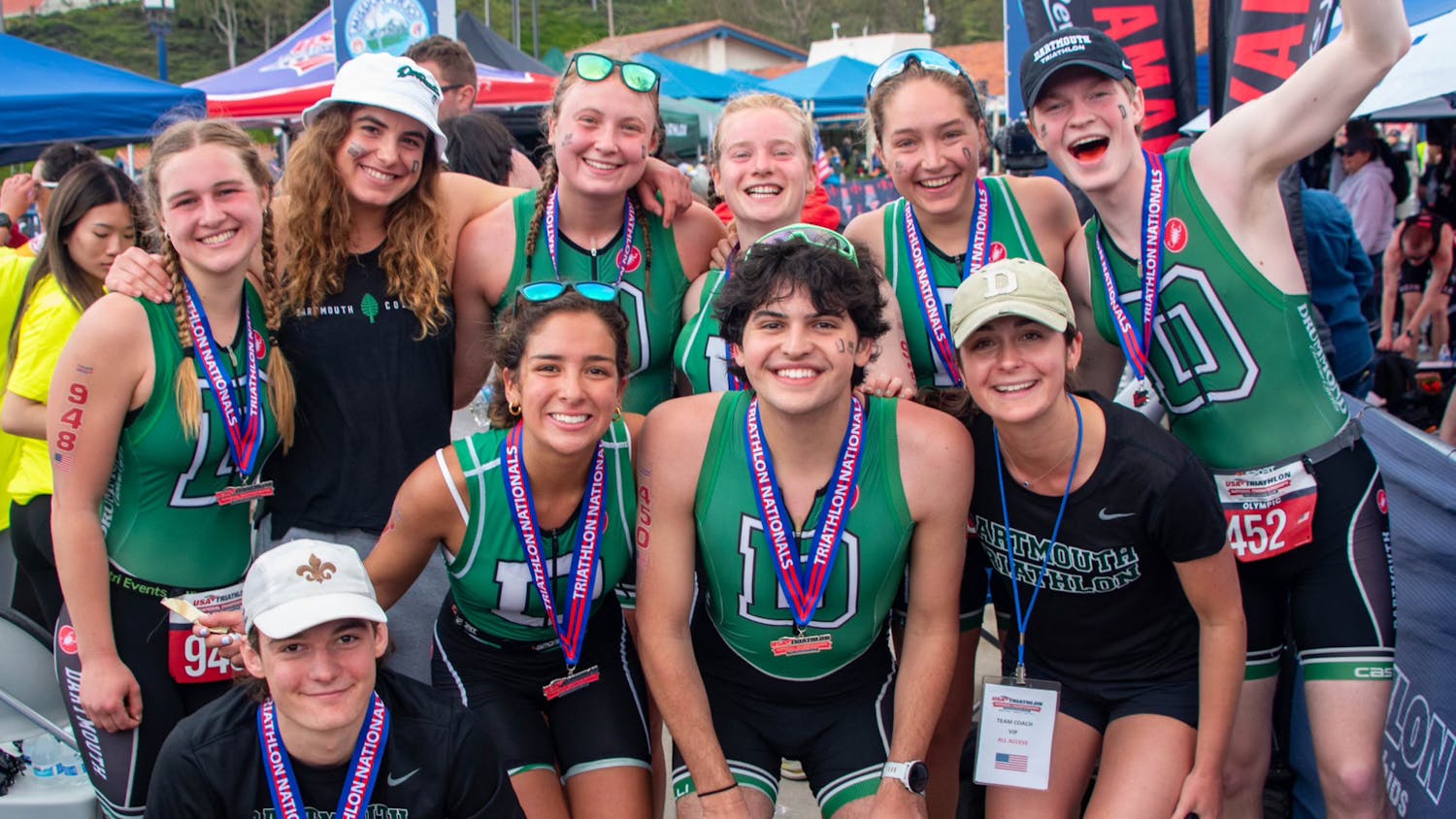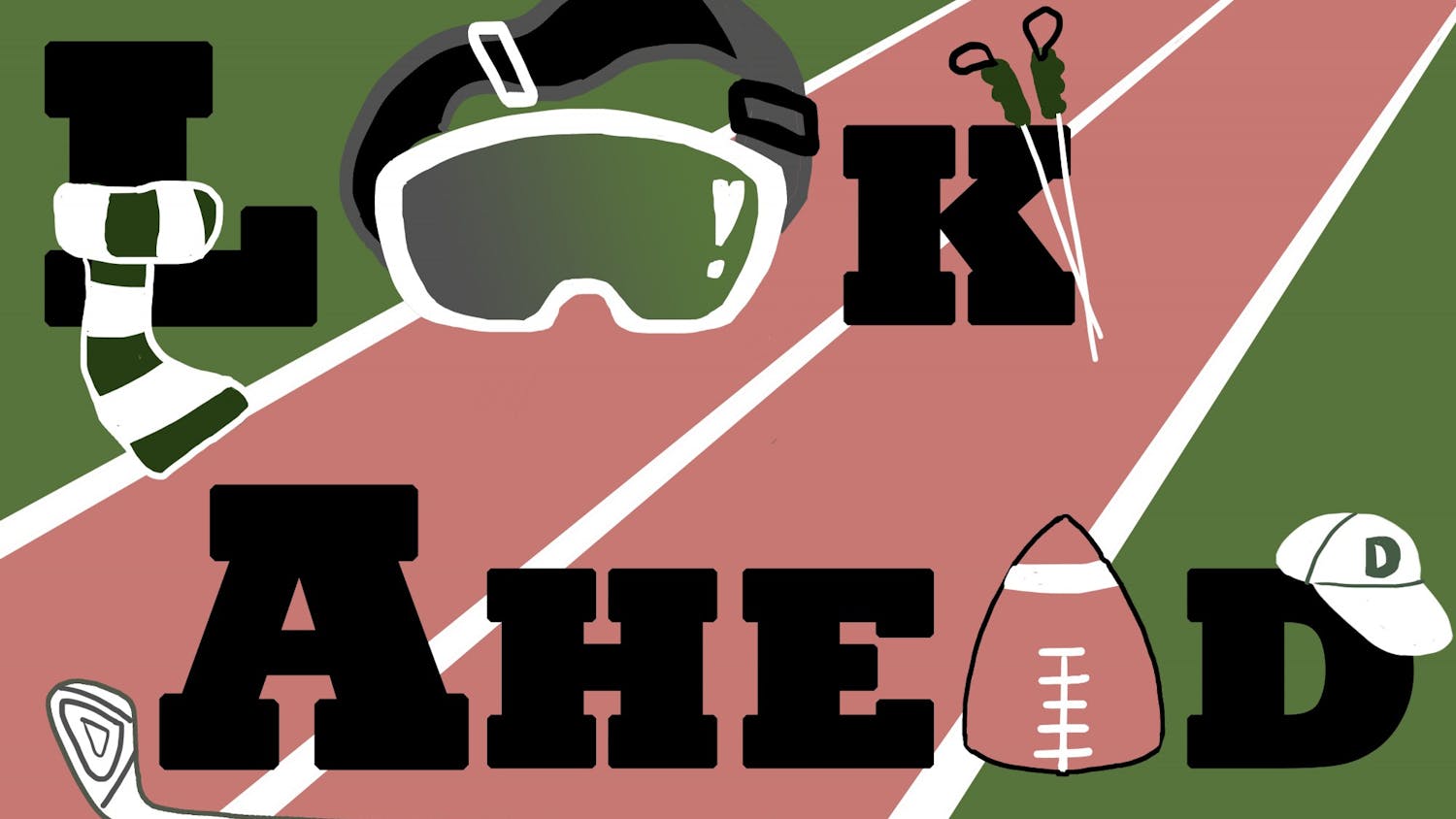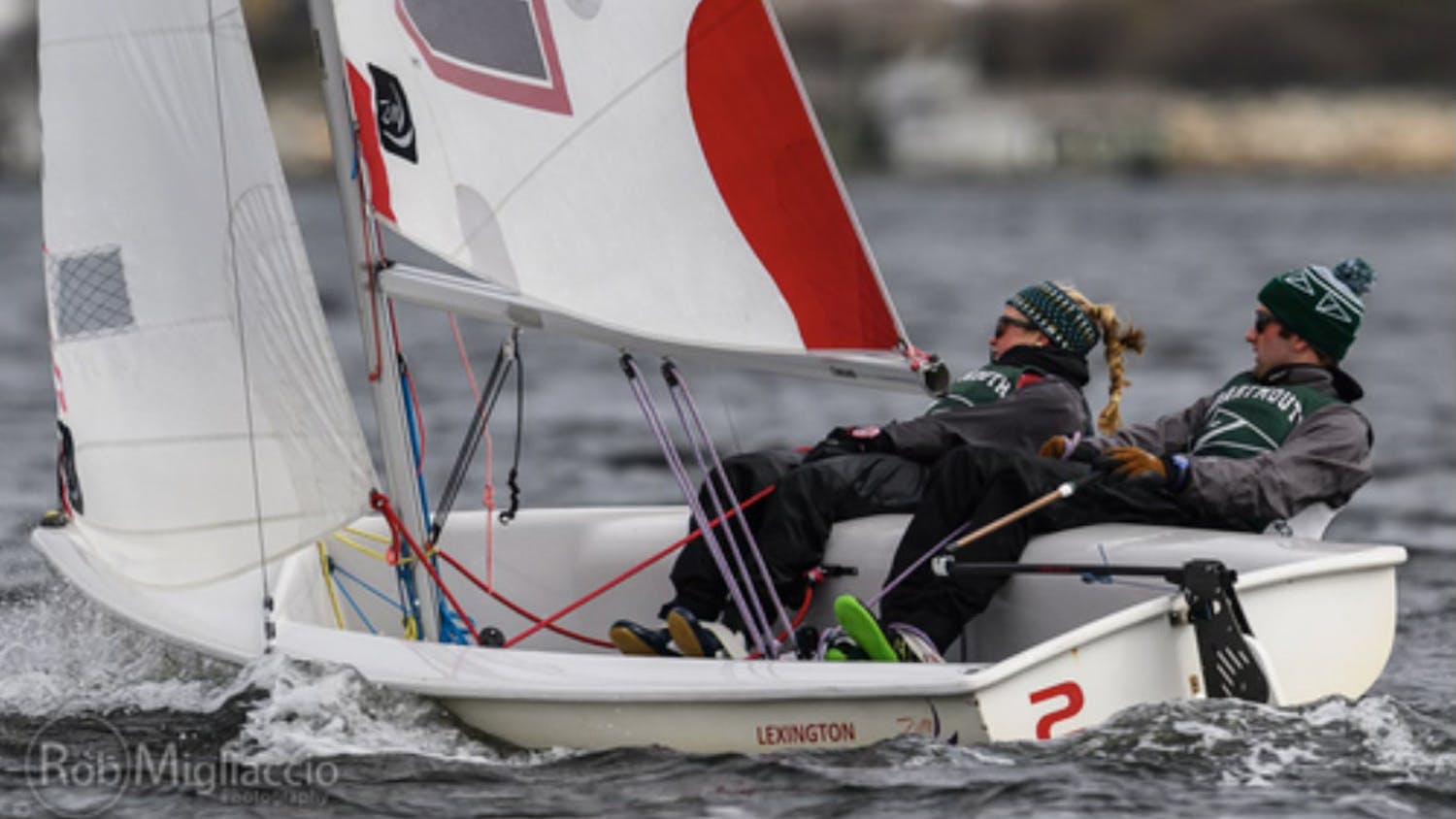The women’s swimming and diving team is off to a great start, recording their first win against the University of New Hampshire on Friday and looking to finish higher than last year’s eighth place performance at the Ivy League Championships. The Dartmouth sat down with co-captain Caroline Poleway ’19 to talk about the team’s prospects for the season as well as her swimming career. Poleway swam in multiple events last year, including in the 400m medley relay that set a Dartmouth school record. Poleway has high expectations for the team as well as herself based off of last year’s finish and the talent the first year students offer.
Can you describe your background in swimming before coming to college?
CP: Yeah, of course. I have actually been competitively swimming since I was 5 years old. It’s just always been a part of my life. I came from Badger Swim Club, which is a club in Westchester, New York, specifically in Larchmont. Basically, my entire life has involved competitive swimming. In high school, I had morning and afternoon practice, which is the same here at college.
Going back to your freshman year, what was the adjustment from high school to collegiate swimming like?
CP: It was an adjustment in the sense that the classes at Dartmouth were a lot harder and the training was a lot different. It was an adjustment in both categories. Throughout my high school and college careers in swimming, I have learned time management skills, so I already knew that if I have 30 minutes before practice, I should use those 30 minutes to study. It was an adjustment in that the things I was doing were 10 times harder, but as far as staying on top of my work, that was an easy transition for me.
How have you developed as an athlete here at Dartmouth?
CP: What has really changed since high school is that in college, swimming is a team sport. When you jump in the pool, you are trying to score as many points as you can for the team, especially at Ivies. In high school, I knew I had to get the best time individually if I wanted to get recruited. In college, it’s more about winning as a team. I have become more team-oriented and have fallen in love with the sport again because of it. In high school, I put a lot of pressure on myself to get recruited, but once I came to college and became a part of the family that is the team, I started having fun again with the sport.
Would you say that’s indicative of the team’s culture?
CP: Dartmouth as a whole has a really good community. That’s one of the reasons I came here. Once you are in, you are part of the Big Green family forever, which I really like. I think we are very close as a team, too. We spend so much time together in and out of the pool that we develop a bond that I think will last outside of college.
What does the season look like for this team?
CP: I’m really excited about the season. We are off to a great start. We had our first win against UNH on the women’s team. UNH does not have a men’s team, so they did not compete. The freshmen bring a lot of talent, and we’re excited to have them on the team. We are swimming way faster than we were at the beginning of last year. It’s exciting to see us progress as a team. We have a dual meet next weekend against Cornell University and Harvard University and we should be pretty close with Cornell.
What teams do you expect to be most competitive with in the Ivy League?
CP: I would say we are most competitive with Brown University, Columbia University and Cornell University. They are probably going to be the closest to us at Ivies.
All four members on the record-breaking 400m medley relay team are returning this season. The freshmen have been contributing greatly to the team these past two meets. Based off this information, would you consider yourselves a young team?
CP: I would say we are a young team. We got our new coach about three years ago. The first two years are a lot of transitioning. He’s getting to know Dartmouth and we’re getting to know him. I think we’ve worked out a lot of the kinks and we’re ready to do our best. We’re still transitioning. A lot of the Ivy League has gotten new coaches, and you’ll see that it does take time for programs to grow.
What event are you focusing on going into the season?
CP: The 200m backstroke. I’m trying to break two minutes — a little stepping stone in swimming. We are constwantly trying to break little barriers in this sport. I went 2:01 last year, so I’m hoping to drop two seconds down to 1:59. That would be a big accomplishment for me.
How has your role on the team changed as a senior?
CP: A lot of the underclassmen look up to you. They come in not knowing how things work and they look at your behavior as an example. You are a role model for the team. I am one of the three captains on the team. We are trying to foster the best possible team atmosphere and boost each other’s confidence. By creating a better environment, we are more likely to succeed.
Dartmouth’s unique schedule divides your season up quite differently. What does training over winterim look like?
CP: We are going on a training trip in the Florida Keys for part of the break, but we will be here on campus for part of the winterim.
What challenges does the team usually face being on campus during winterim?
CP: The campus gets really empty — it almost seems like a ghost town because there are so few people here. You don’t see people outside of the swim team. It’s cold and walking to the pool can be rough. You’re usually okay once you get on the pool deck though. I remember last year it was -10 degrees when we came back around New Year’s. We try to do team bonding events at night like a movie night, or last year we had a gingerbread competition. We want to do whatever the team needs to get out of the funk of being the only people on campus.
Do you think being the only people on campus positively impacts training?
CP: I think it’s a good thing. It’s positive in the sense that instead of having to focus on school work and have a million things to focus on, we are able to rest and use our owxn facilities, like Floren Varsity House and the pool, whenever we want. Although there’s not much going on in Hanover, we are able to devote ourselves to our training.
Fast forward to the middle of February, how do you want to finish the season and your swimming career at Dartmouth feeling? Will you continue with the sport?
CP: I’ll probably stay engaged with the sport after college, but I’m not sure what that will look like. Since I’ve been swimming all my life, it’s hard to imagine the sport not being a part of my day-to-day life. You know, at Ivies, I just want to celebrate that moment. It’s such a great accomplishment to have completed four years of college and to have competed in swimming since I was 5, which I think is so amazing.
This interview has been edited and condensed for clarity and length.



